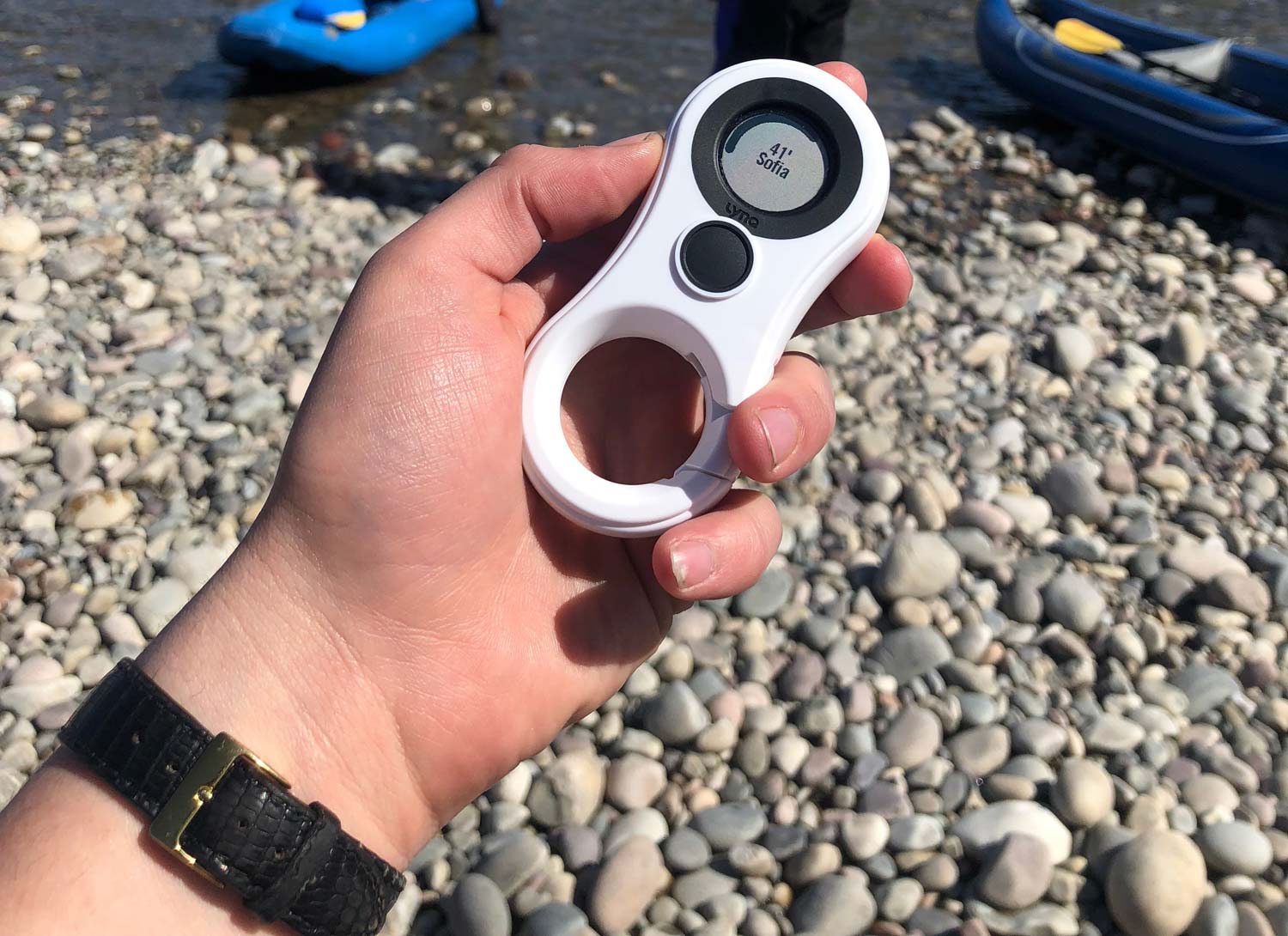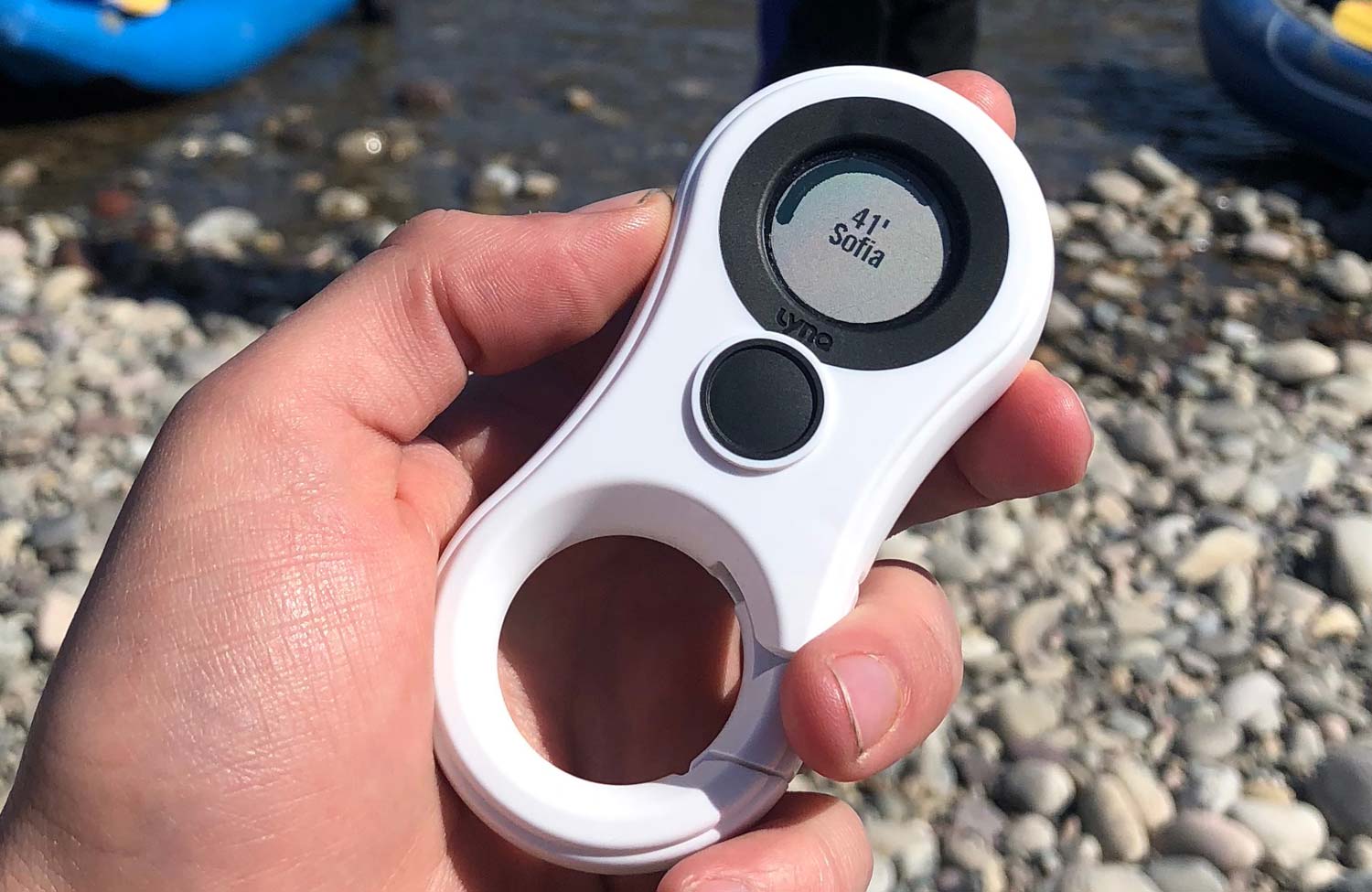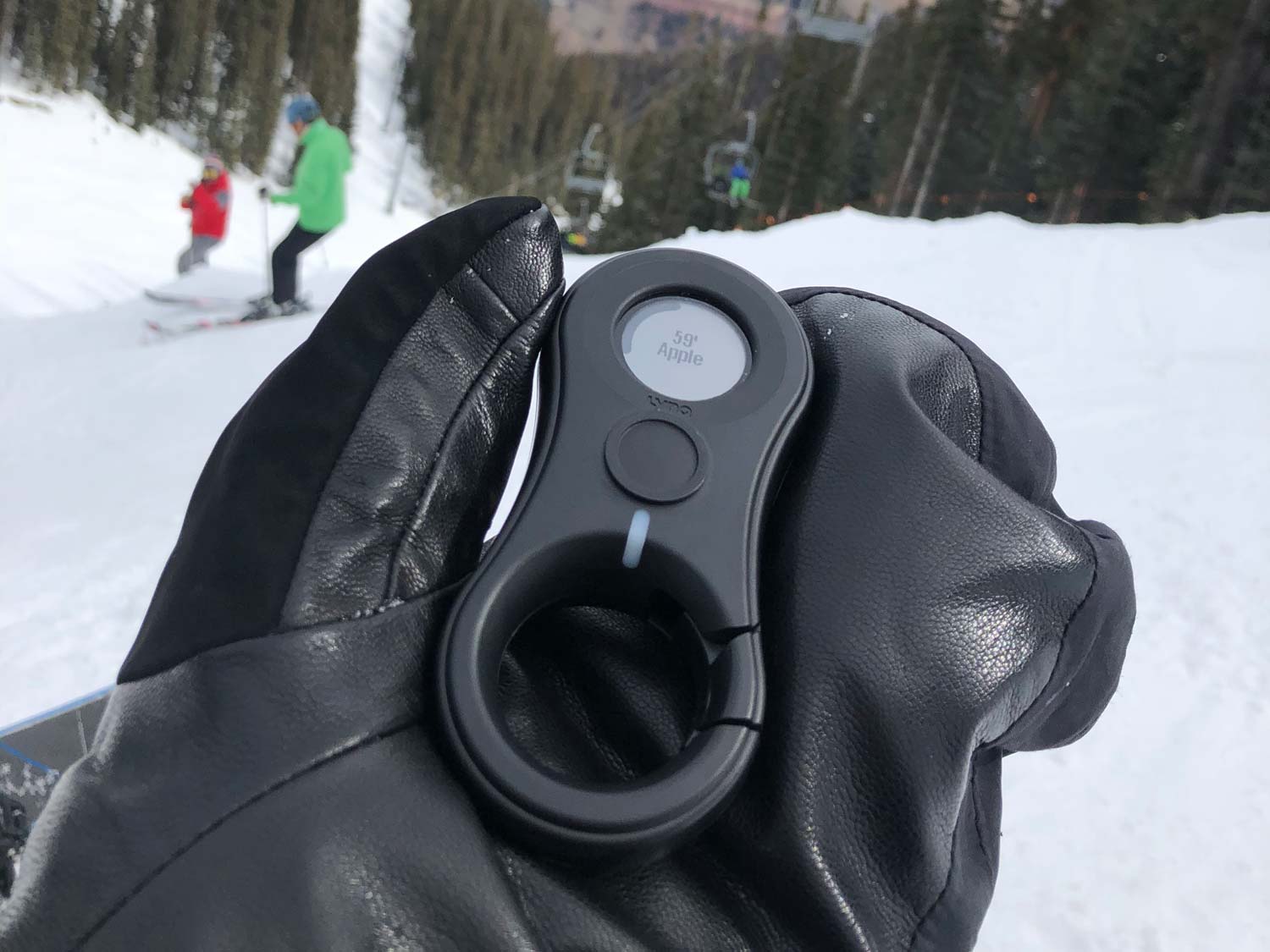The Lynq Tracker Finds Family and Friends, No Fee or Phone Required
Lynq can give you real-time distance and direction on a tracker that doesn't need to connect to a smartphone or require a monthly subscription.

Strap on a Lynq, and you'll be able to track down any friend or family member who's also carrying one of the smart compasses around. And you won't need a special app, connected smartphone or subscription service to make it all work.

With pre-orders beginning today (May 15), Lynq is a standalone device that pairs with up to 12 Lynqs to help you keep track of people when you're separated in the great outdoors. Lynq flashes up real-time distance and direction to other people on its easy-to-read interface so that you know which way walk and how far to go if you get separated or need to rendezvous on a hike, at a festival or in some other outdoor setting where it's easy to lose your bearings.
Lynq will cost $249 for a pair of trackers, with the per-unit price dropping as you order more. As part of the newly launced pre-order campaign on Indiegogo, Lynq is offering a pair of trackers at a reduced price of $154.
As co-founder Matthew Misbin and chief operations office Drew Lauter explained to me when demoing the device, Lynq acts like a magic arrow pointing the way to help you find your friend wherever they might be.
The Lynq pulls this off by using LoRa, a long-range, low-power wireless technology that connects over subgigahertz radio frequency bands. Because there's no network to connect to, there are no monthly fees to pay. The only thing you pay for is the device itself.
MORE: Gift Ideas for Hikers, Campers & More
That's a departure from the GPS trackers we've reviewed at Tom's Guide, which can range anywhere from $4 to $20 a month depending on the level of service you want. You'll give up some accuracy with Lynq's approach, though Misbin and Lauter say the device can get you within 15 feet of the person you're looking for. But you're not sacrificing much in terms of range — two Lynqs can stay in contact up to 3 miles in areas where there aren't a lot of buildings to block the radio signal. And because you're not connecting to a cellular or satellite network, Lynq also works when you travel overseas.
Sign up to get the BEST of Tom's Guide direct to your inbox.
Get instant access to breaking news, the hottest reviews, great deals and helpful tips.
You also don't have to worry about connecting the Lynq to your smartphone, potentially draining that device's battery. Lynqs pair with one another, and the company says a fully charged Lync can last up to three days before you need to recharge it, thanks to an e-ink display that's not drawing that much power.

The simplicity of the display was probably my favorite feature during my Lynq demo. All you see on the screen is the name of the person you're tracking, the distance you are from them, and a dot indicating the direction you need to be heading to meet up with them. The closer you get, the larger that dot grows until it encircles the screen. Everything's easy to see with just a glance at the Lynq, and even though I used the device on a fairly sunny day, I never had a hard time seeing any of the distance and direction info in sunlight.
That approach to simplicity also influenced the Lynq's design. You attach the device to your belt, jacket or backpack with the built-in carabiner (which also happens to house the Lynq's antenna). There just one-button, which you use to pair your Lynq or cycle through the different devices you've connected to. A button-lock feature disables any presses by kids who just can't resist mashing buttons.
Some users may balk at Lynq's lack of bells-and-whistles. There's no panic button on the device, nor is there any way to transmit your voice. (You can send canned messages along the lines of "Help" or "Stay there" using the Lynq's lone button.) The Lynq does allow you to set up a homebase — helpful for finding your way back to a starting point — and you can also set up a designated safe zone to alert you if children or the elderly start to wander off.
Given those features, Lynq is clearly designed with outdoor enthusiasts in mind, those the device could also come in handy if you don't want to lose track of children or aging parents in a crowd. Lynq's founders also talk up the device's potential for humanitarian workers and first responders, pointing to a study by U.S. Pacific Command that found Lynq cut the time it took to find wounded soldiers by 61 percent. The 4 x 2 x 1-inch tracker only weighs 2.6 ounces, and it boasts an iPX7 waterproof rating to survive splashes.
Lynq may be best suited for wide-open spaces but I didn't run into any problems using the tracker during a demo in a San Francisco park. Pairing my Lynq with another person's took only a few presses of that single button, and Lynq was able to guide me through a modestly crowded park just by flashing the direction I needed to be walking and letting me know at a glance when I was getting closer to the person I was trying to link up with.
Philip Michaels is a Managing Editor at Tom's Guide. He's been covering personal technology since 1999 and was in the building when Steve Jobs showed off the iPhone for the first time. He's been evaluating smartphones since that first iPhone debuted in 2007, and he's been following phone carriers and smartphone plans since 2015. He has strong opinions about Apple, the Oakland Athletics, old movies and proper butchery techniques. Follow him at @PhilipMichaels.

